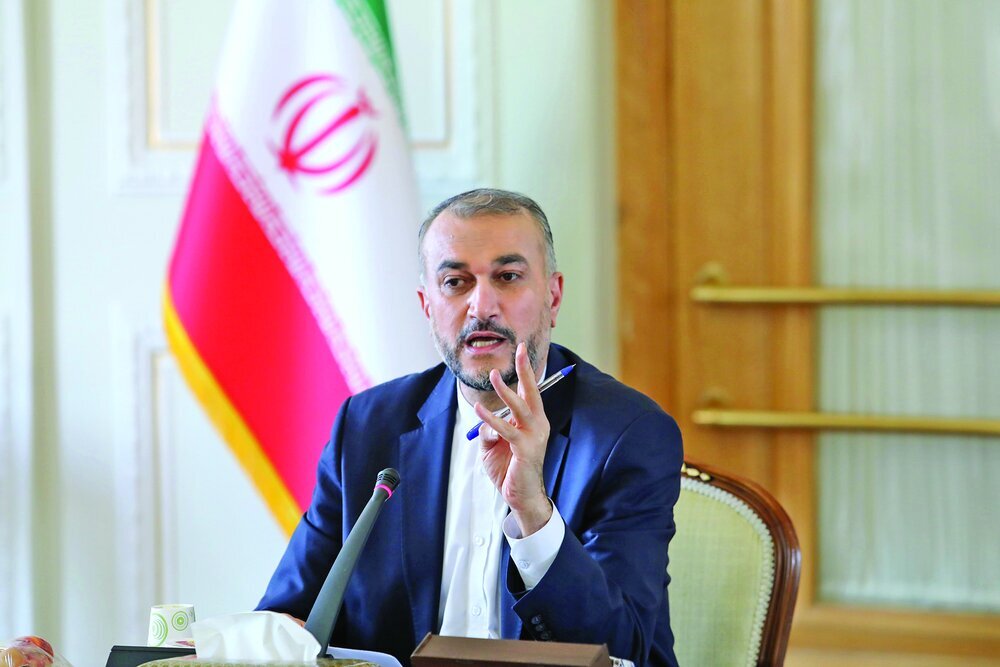Iran FM blames U.S. for pause in Vienna talks

TEHRAN — In a tweet posted late on Monday, Iran’s Foreign Minister Hossein Amir Abdollahian said that the United States is responsible for the current pause in the ongoing talks in Vienna to remove the sanctions imposed on Iran.
“If there’s a pause in the Vienna negotiations, that’s because of excessive demands by the U.S. side.
The Iranian Foreign Ministry will act forcefully and rationally in line with the best interests of the Iranian people and the red lines of the nation.
We will never give in to excessive demands of the U.S. If the White House acts realistically, a deal is at hand,” Amir Abdollahian tweeted.
Because of the Biden administration's incapacity to make difficult political decisions, talks in Vienna to resurrect the 2015 Iran nuclear deal have come to a halt.
After a week of diplomatic finger-pointing between Russia and the West over who is sabotaging the Vienna negotiations, expectations for an early conclusion have dimmed due to Biden's dithering over the last remaining concerns.
Iran appears to have made all of the difficult decisions required to move the talks forward. During the negotiations, Iran offered novel answers to a number of vexing concerns, including guarantees and verification procedures. However, the United States continued to reject the recommendations while failing to come up with fresh answers.
In this regard, the spokesman for Iranian Foreign Ministry said on Monday that the U.S. must make a decision if it wants to reach an agreement in Vienna.
“Iran and Iranians cannot be patient forever. If the United States wants to reach an agreement, it must make a political decision as soon as possible,” Saeed Khatibzadeh asserted.
The spokesman said that the United States is responsible for bringing the talks to a halt.
“The solution is in the White House,” he reiterated.
While Iran believes that a deal in Vienna is close, the U.S. continues to dim prospects for a deal. In recent a phone call with UN Secretary General Antonio Guterres, Amir Abdollahian informed him that the negotiations are nearing completion. "We are close to an agreement in the negotiations, and we have transmitted our offers on the remaining problems to the United States side through the European Union's top negotiator, and the ball is now in the United States' court," he said.
